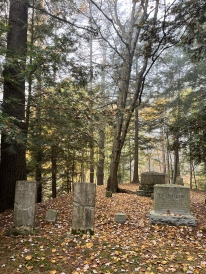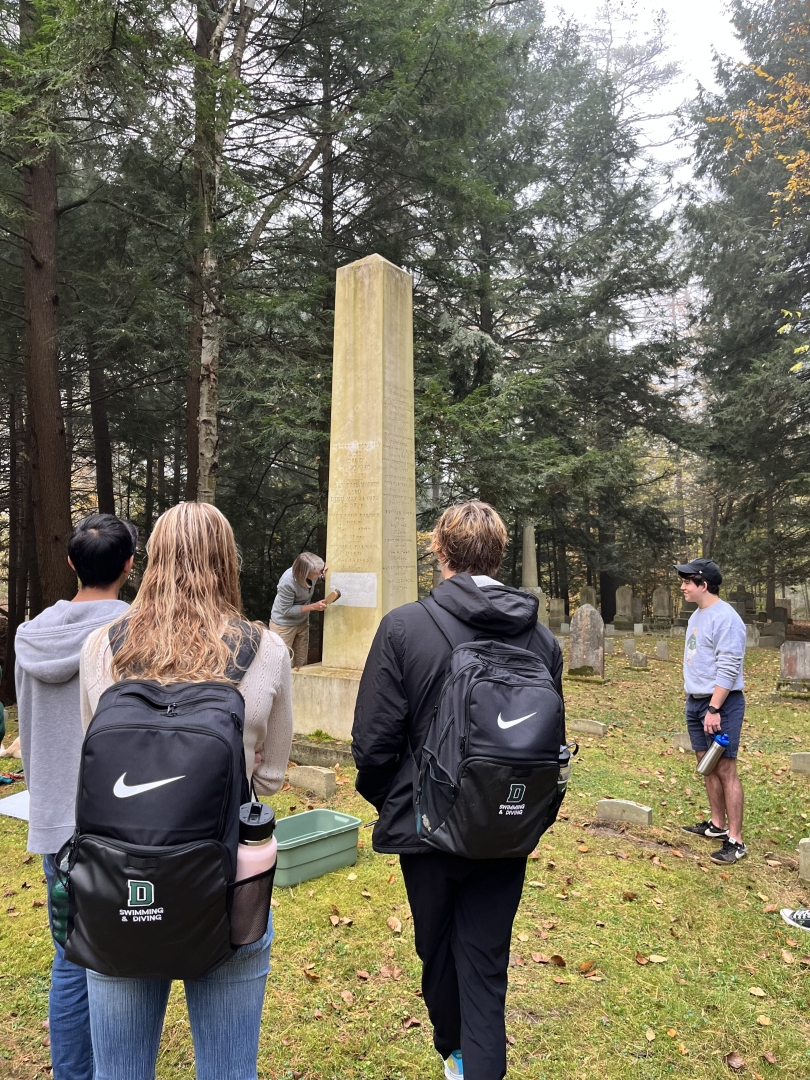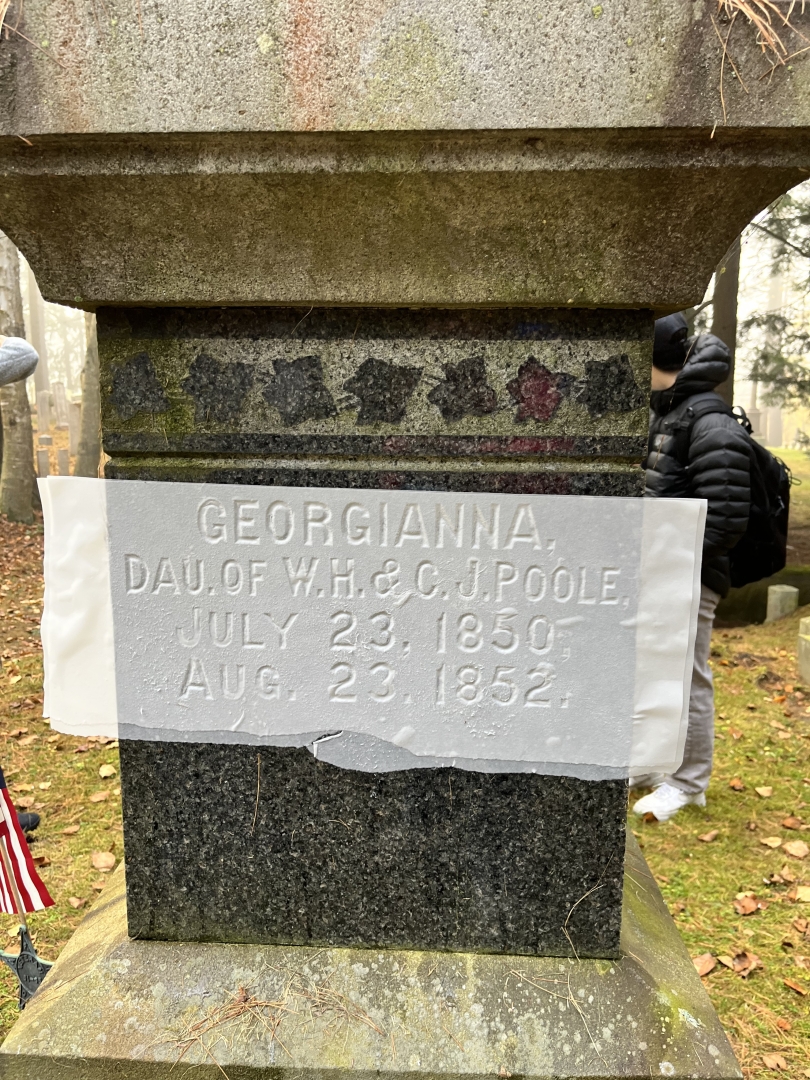

Lauren Groulx

You are here

Learning Latin at Dartmouth
Dartmouth may be situated in a relatively rural location, but that doesn't mean students can't get involved in hands-on research in their fields of interest. I've always been fascinated by the prospect of studying Classica;l languages but never had the opportunity to do so in high school. Here at Dartmouth, I knew that I wanted to learn Latin to fulfill my language requirement, and I've been loving the course so far.
I was nervous about studying a language I had no experience in, but it has been extremely attainable so far. Although we've been moving quickly, my professor and Learning Fellows (former Latin students who help with small group work and discussion) have been kind and knowledgeable.
In my class, we've been reading Roman funerary inscriptions on paper. Our professor wanted us to have a real-world experience with what we were studying, so she took our class on a trip! We went to the cemetery behind FoCo (Class of 1953 Commons, our dining hall) to make squeezes of graves.
Although I was a little bit apprehensive when I found out that my class would be visiting the cemetery, I found the trip extremely interesting. I had never really spent time exploring a cemetery before, and I enjoyed learning a bit more about Upper Valley by piecing together family connections.
Squeezes are paper impressions of inscriptions made by placing wet paper on a surface and beating it with a specially made brush. Care must be taken to ensure no air bubbles are trapped and that the paper doesn't rip. After the paper dries, it is removed from the stone. It then provides an extremely accurate image of the inscription, including any changes or damage to the stone.


Squeezes were most popular in the late 1800s, but repeatedly making squeezes of the same inscription can lead to damage and decomposition. As photography has become more advanced, the process of making squeezes has been rendered obsolete. Nevertheless, my class had a fun time learning a traditional method of fieldwork.
After making our squeezes, we were given a worksheet and instructed to walk around the cemetery and look for a variety of specific gravestones. While completing this assignment, my classmates and I learned a lot about local Hanover history. In particular, our search for a family plot led to the discovery of the resting places of many notable Dartmouth alumni and local figures.
Since my experience making squeezes, I've found myself more and more interested in learning about Classics. This field can feel a bit inaccessible because modern society is so removed from ancient history. Despite this, there is a lot to be learned about Roman and Greek cultures that can be applied to contemporary issues.
I can't wait to learn more next term, in Latin 2. I also hope to take another Classics course in the future! If you're considering studying Latin at Dartmouth, or expanding your horizons by learning an unfamiliar language, I highly recommend you to do so! You never know what opportunities you will be presented with.
Posts You Might Like

Ciao Bella! Let me explain how I am completing the Dartmouth language requirement one row at a time.


Read more about the Ling 1 Introductory Linguistics class!


For our last free weekend on the Beijing LSA+, here's how I helped organize a trip to Ulanqab, Inner Mongolia!


Between vineyard walks and a tasting with the owners, come along on our visit to Mystic Island Winery, hosted by Dartmouth alum KC Kung '98 and his wife, Rita Kung.


Despite the busy, unpredictable streets, biking through China has been an unforgettable adventure. Read on to hear more!


Read more about the Spanish 9 Advanced Culture and Conversation class!


What orientation is like for first years at Dartmouth!


Come learn about the classes I'm taking this summer!


My time at the MFA, completely free of charge!
